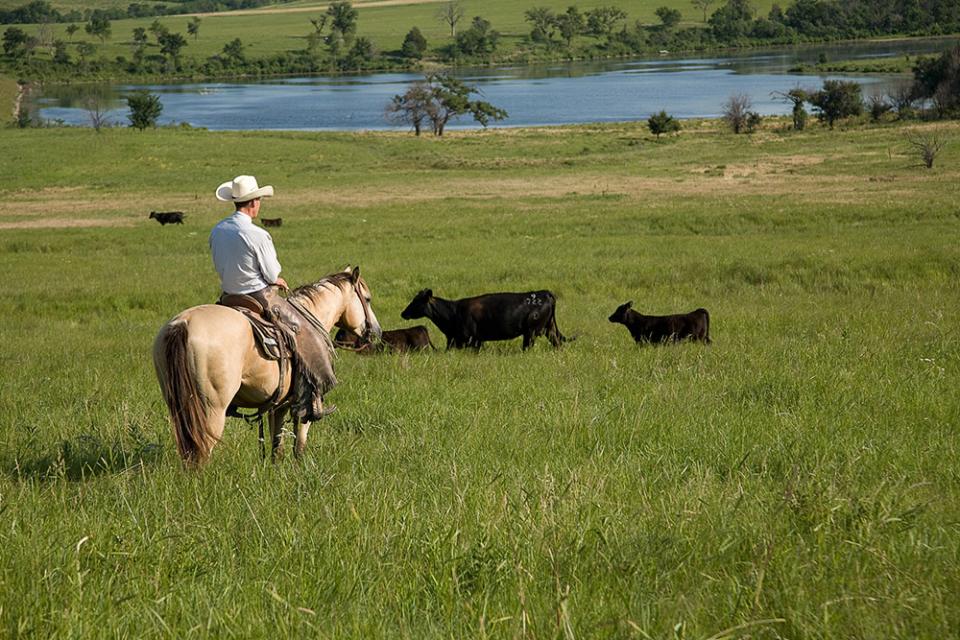Grass tetany is a common problem in livestock usually prevalent in the early spring grazing season, said David Fernandez, Cooperative Extension Program livestock specialist at the University of Arkansas at Pine Bluff. Sheep and cattle are more susceptible than goats.
Often, the only sign of grass tetany is a dead animal, he warned. Animals with grass tetany exhibit a staggering gait followed by paddling or swimming convulsions and then death.
Potassium interferes with magnesium absorption in the digestive track of livestock. Rapidly growing grasses, especially small grain pastures, such as wheat, rye and ryegrass, tend to be high in potassium. Pastures fertilized with potash also have a higher potassium levels in plants. Early lactation and late pregnancy drain magnesium and other minerals, especially in sheep, Fernandez said, and offered the following tips to preventing grass tetany.
Limit the amount of time animals graze fresh pasture. Allow them to eat their fill of hay before turning them out on pasture. Provide special high magnesium mineral blocks or loose mineral. Give livestock magnesium for two weeks before turning them out on fresh pasture so their magnesium levels are adequate at turn out.
Be sure to remove all other salt blocks from the pasture so livestock eat enough of the high magnesium mineral. Livestock don’t really like the taste of magnesium mineral salt, so be sure they eat enough of it daily. Mix loose magnesium mineral with molasses or ground corn to aid consumption.
Treat grass tetany with calcium borogluconate with 4 to 5 percent magnesium. This is usually done intravenously, so your veterinarian may have to administer it. A calcium magnesium gel, like CMPK gel or bolus can be given orally if the problem is caught early.
Rolaids antacid tablets contain calcium carbonate and magnesium hydroxide. “In a pinch, dissolve about 20 tablets in a quarter of a cup of water as a drench,” Fernandez said. “Be careful to avoid stressing the animal. Excessive stress can cause the animal’s heart to stop when it has grass tetany.”
For more information on grass tetany or other livestock related problems, contact Dr. Fernandez at (870) 575-7214 or fernandezd@uapb.edu.
Date: April 6, 2015 Source: Cattlenetwork
